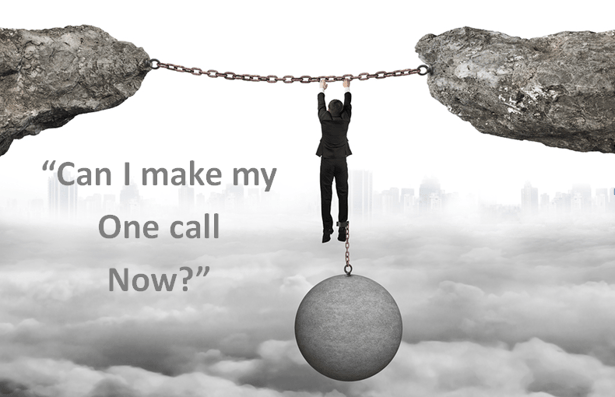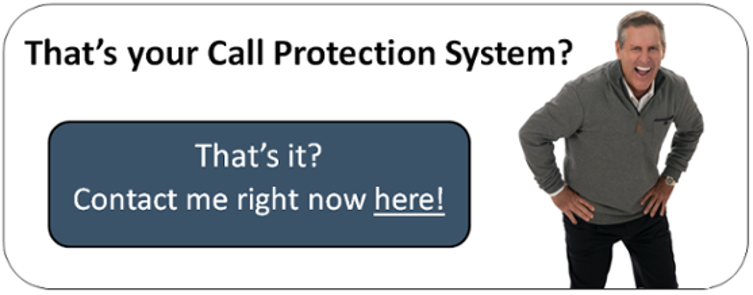
Although many phone marketing experts wait for an easing of the FCC’s identity certainty laws, consumer advocacy groups continue to ensure the burden of cell owner verification remains a business liability. “What’s a few lawsuits and financial windfalls over a wrong number call” they claim. “That doesn’t mean businesses should be relieved of the responsibility of right party verification before calling.” Of course, you can always make one hand dialed call to check if you like. [Click Video]
This video is for informational purposes. Please consult your own attorney with questions specific to your business.
The FCC itself is clearly divided on the number identification issue. Yet fines are still very real to businesses wanting to communicate with previous relationships. So calls based on previously obtained individual permissions continue to be potentially problematic – and dangerous.
Consumer Groups want Wireless Number Identification burden on businesses.
Whatever you call it: Reassigned numbers, Right Party Verification, Number Authentication - the FCC says you need to verify your permission based numbers before calling. Not to the “intended” party that gave you consent to call – but the “actual” individual that acquiesced. Some judges call the update “untenable” and have stayed decisions on it. Consumer groups like the National Consumer Law Center say the opposite: "The wrath of robocalls will be further unleashed to cells if the current wireless identification rules are eased."
FCC itself divided on Reassigned Number Ruling.
The FCC’s own blog states:
While relying on a number of flawed assumptions, the FCC: (1) rejected the sensible “intended recipient” interpretation of “called party”; (2) disregarded the fact that comprehensive solutions to addressing reassigned numbers do not exist; (3) adopted an unworkable and ambiguous “one-call exemption” for determining if a wireless number has been reassigned (a rule that constitutes “fake relief instead of a solution,” as explained by Commissioner O’Rielly); and (4) encouraged companies to include certain language in their agreements with consumers so that they can take legal action against consumers if they do not notify the companies when they relinquish their wireless phone numbers.
Number Identification issue has led to several “stayed” court decisions.
Some judges feel the FCC is flat out got it wrong on this reassigned number responsibility thing, and prefer to wait until the FCC reconsiders it. Several consumer Amicus Briefs have been written in support of the FCC’s reassigned number decision, to further muddy the waters. The National Association of Consumer Advocates and others have made it clear: If the consolidated appeal “were to be successful, an unprecedented number of robocalls, affecting nearly every consumer in the nation, would be unleashed."
Consumer groups back number identification rule as it stands.
They contend that the “fictional threat of spurious litigation” or a “few problematic class actions” should not “diminish the necessity of fostering effective enforcement of the significant protections provided by the TCPA." Further, updating and clarifying the definition of an auto-dialer would undo 20 years of case law. Consumer groups contend that interpreting the term “called party” as the intended recipient instead of the actual recipient of the call is a “tortured analysis” of the TCPA’s plain language that leaves “innocent customers who receive uninvited, wrong number calls without recourse.”
The reassigned “one call” olive branch.
FCC: "Callers who make calls without knowledge of reassignment and with a reasonable basis to believe they have valid consent to make the call should be able to initiate one call after reassignment as an additional opportunity to gain actual or constructive knowledge of the reassignment and cease future calls to the new subscriber. If this one additional call does not yield actual knowledge of reassignment, we deem the caller to have constructive knowledge of such.”
The FCC driven by consumer interests throughout its Reassigned Number Declaratory Ruling.
To the point of suggesting a business sue their customer should that customer fail to advise the business of a wireless number status or ownership change. This misguided suggestion implies the company should sue their customer? - Huh?
Number identification solutions for businesses have come a long way, but not perfect.
Companies supplying certainty identity information based on direct-to-carrier relationships for businesses are rushing to fill this TCPA void. Today, it is possible to be reasonably accurate you’re calling the right person before you make the call. Precision from companies with direct to carrier relationships can be as hight as 94%. Of course, carriers still can't tell you the owners new number in these lookups. (Heck, you don't have permission to call them at their new number anyway!)
In Summary.
It doesn't look like the Number Identification/Reassigned Numbers issue for businesses is going to change anytime soon. So take steps to protect yourself before calling permission-based relationships. Look for a Do Not Call Law Compliance Service Provider with wireless identification services. The protection can get pricy in a hurry - A fair rate starts at $.12 to $.08 per verified record. So you can scrub for verifications once a month, or before each campaign. The longer it's been since you obtained permission, the greater the chance of a "recycled number" ownership change.
For more information on number identification scrubbing, just call me on my personal line at 561-317-3001 or contact me here - Bob.
Check out Bob's informational videos on our YouTube Channel here.
Related Articles:
-
Reassigned Numbers must be Right Party Verified on Permission-based Calls: TCPA.
-
How do I know I'm calling the right person? Check for Reassigned Numbers.
-
How do I check for Reassigned Numbers on my Permission/Consent Calls.
-
Does the TCPA require Mobile Verification on Reassigned Number Calls?
-
37 Million Phone Numbers were Reassigned last year - so Verify Permissions before calling!
-
Permission based marketers need Cell, Litigator and Reassigned Number Scrubs today.
This presentation contains images that were used under a Creative Commons License. Click here to see the full list of images and attributions:







